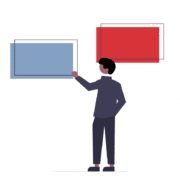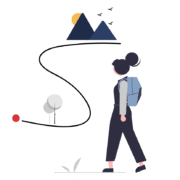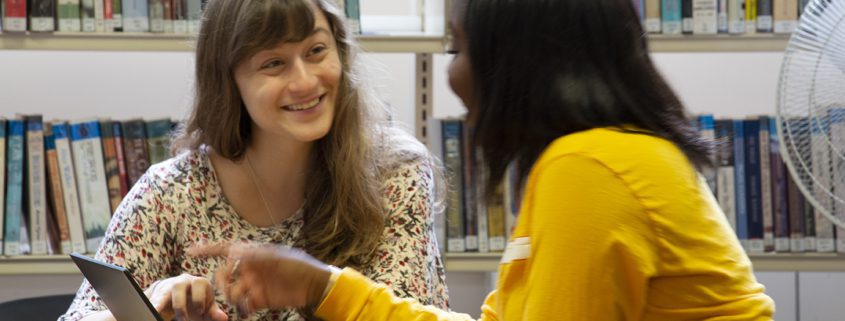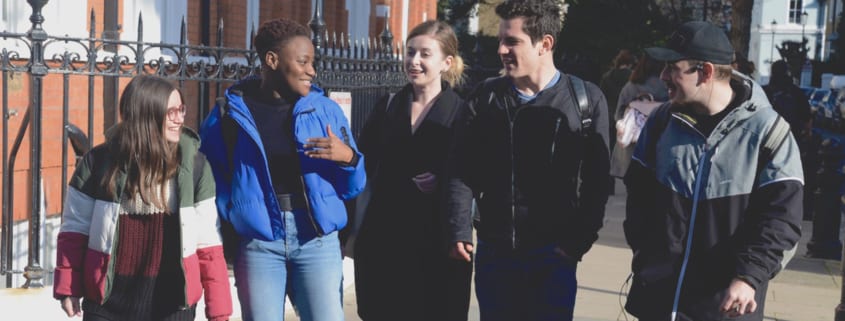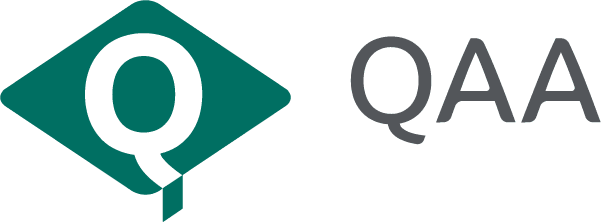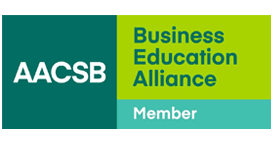The Liberal Arts
A liberal arts education empowers students to solve problems, adapt, and collaborate. It also prepares students to become the types of employees organisations want to hire. But a liberal arts education doesn’t just provide great employability. It also enhances students’ personal and social development, providing them with self-confidence, self-understanding and a sense of social responsibility. A liberal arts education at Richmond can foster those qualities and skills, providing choice, freedom and diversity.
Here’s how.
All of our undergraduate students at Richmond take seven Core Curriculum courses in liberal arts, alongside some courses relating to their chosen subject or subjects (students may be exempt from some of these Liberal Arts subjects depending on their qualifications, see below for details). These courses reach across disciplines, building connections between different academic areas such as philosophy, writing, science, business, creativity, communications, digital futures, international relations, history and psychology.
By exploring a wide range of subjects, it enables students to gain a broader perspective of the world around them, developing their intellectual curiosity. It also makes for a much more diverse student experience, working with students taking other subjects in a truly multi-cultural, international learning environment.
Diversity
Study a global curriculum in London with students from across the world and learn to understand and celebrate what makes us different and what makes us the same.
Choice
Choose your own path and decide your major and minor as you learn and develop rather than having to decide before you arrive.
Freedom
Enjoy flexibility across your subjects and the chance to study and to intern across the globe – a life-transforming opportunity.
Major or minor? What do these mean?
Based on the US liberal arts system, your main subject will be a ‘major’. Not sure which subject to take? No problem, you can choose your subject in the first year. All majors are supported by a wide range of electives or optional courses, giving you more choice.
You can also choose to take a ‘minor’, an optional, additional subject which doesn’t need to be related to your major but it could be a subject that you’re passionate about. Or it could give you a competitive edge when it comes to graduation. We have no less than 26 minors for you to choose from, mix and match from these options:
- Accounting (not available for students majoring in Business Management)
- Accounting and Finance (not available for students majoring in Business Management)
- American Studies
- Art History and Visual Culture
The Liberal Arts Core Curriculum
Your degree at Richmond will usually take four years (or eight semesters), although this can be shortened through the transfer of eligible academic credit. If you enter with A-levels at grade C or above, or equivalent qualifications, you may be exempt from some of these Liberal Arts subjects and could complete your degree programme sooner. Students entering with a US High School Diploma or equivalent usually complete in four years.
The Liberal Arts Core Programme is based on seven core curriculum courses (with a mix of required and optional courses), including an Environmental Studies course in your first, second or third year. The seven courses, which are spread over the first three years of a four-year degree programme, are outlined below.
The Liberal Arts Core – at a glance
A focus on embodying change
7 required courses
Level 3 - 3 required courses
or
and
|
Level 4 - 2 required courses
Plus
|
Level 5 - 1 required course
|
One required ENV course at Level 3, 4 or 5
|
Subject exemptions
As outlined above, if you enter with A-levels at grade C or above, or equivalent qualifications, you may be exempt from some of these subjects and could complete your degree programme sooner. Students entering with a US High School Diploma or equivalent usually complete in four years.
In order to assess you for potential exemptions we will need to complete a TCE (transfer credit evaluation). For more information please visit our transfer credits page.
Liberal Arts – A History
Liberal arts. What does it mean? Why choose a university with a liberal arts approach? What difference does it make to students?
Liberal arts education has been around for thousands of years, since the time of the Ancient Greeks and Romans, who considered a liberal arts education necessary for a human being to be free.
But what does ‘liberal arts’ mean? It’s not a programme focused only on the ‘arts’ – a collection of subjects generally associated with the humanities. It derives from the classical and mediaeval collection of subjects known as artes liberalis: the knowledge worthy of a free person.
‘The academic course of instruction at a college intended to provide general knowledge and comprising the arts, humanities, natural sciences and social sciences.’ (Collins Dictionary)
Traditionally, there are seven subjects that made up the liberal arts:
- The trivium of humanities (grammar, logic, and rhetoric); and
- The ‘scientific’ quadrivium (astronomy/astrology, music, geometry, and arithmetic).
Taken collectively, these seven ‘artes’ contributed to the overarching art, philosophy.
The core aim of a liberal arts education remains true to these roots today, providing students with knowledge on topics as diverse as science, visual thinking literature, maths and global development.
Key transferable skills
If you’re considering attending university, think about the relevant skills you will need for the future. Not just your first job when you graduate, but the one you’ll have 20 years from now. Ask employers what they look for in employees, or what the most valuable skills are. The list often includes transferable skills such as the ability to collaborate, view things from multiple perspectives, adapt to changing demands and analyse and interpret data.
These are some of the inter-disciplinary, transferable skills that you can gain with our liberal arts approach at Richmond:
- Effective oral and written communication skills
- Problem-solving and pattern intelligence skills
- Ability to learn and synthesise new ideas
- Experience in quantitative and qualitative data analysis
- Critical and reflective reading skills
- Numerical skills
- Effective research skills
- Organisation and time-management skills
- Information literacy skills
- Ability to adapt easily to situations
- Ethical decision-making skills
- Ability to work in a team
- Self-confidence and self-understanding
- Ability to be sensitive to others and be tolerant of cultural differences
- Cross-cultural knowledge
- Ability to pose meaningful questions
Benefits of a liberal arts education
To help outline some of the pros of attending a liberal arts university, here are just some of the benefits given:
Interdisciplinary approach to learning
Integrates different areas of study, providing diversity and exposing students to a wide range of subjects. This broad education in a truly international environment with students and faculty from around the world prepares students to succeed in whatever career they choose.
“Post-graduation I have found that my degrees from Richmond (both UK and US accreditations) have opened many doors both in London and abroad. Explaining how I majored in Economics but also took classes studying the history of Rock & Roll, Mysticism and Magic, Photography, History of Florence (just to name a few), invites conversation from prospective employers and clients alike.
Richmond offers an unparalleled course catalogue alongside a uniquely diverse student population which results in an outstanding liberal arts degree, enabling flexibility for future careers.”
– Katrina
Choice and flexibility
You choose your own path and decide your major and minor as you learn and develop rather than having to decide from day one.
Teaches critical & innovative thinking skills
Through our liberal arts courses, students are provided with the all-important problem-solving and critical thinking skills. They focus on how to think, not what to think. Instead of memorising facts and then forgetting the information at the end of the semester, students learn to examine, think and connect ideas. These valuable skills are even more vital in the workplace.
Personal and social responsibility
With an emphasis on personal responsibility and opportunities for community engagement, all liberal arts students at Richmond undertake some form of service learning or work in the community. This opens their eyes to the world around them and how certain actions affect others. Whether it’s working for a local cancer charity or helping clean a river, liberal arts students at Richmond are engaged and committed to making the world a better place.
Prepares students for jobs yet to be created
A liberal arts education prepares students not only for their first job, but it’s great preparation for future jobs that aren’t even created yet!
There are many jobs that are prominent today that didn’t exist 20 years ago –social media influencers and drone operators to name but two. It’s eye-opening to think about the results of a study from the Institute for the Future which says around 85 percent of jobs in 2030 haven’t yet been invented.
How our students become global citizens thanks to liberal arts
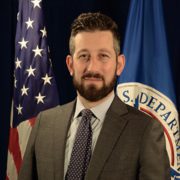
“Richmond is a wonderful place to study, expand your horizons and think out of the box about the challenges facing the global community. Richmond prepared me for a career in both the legislative and executive branches of the US Government and imbued in me a commitment to help make the world a better place.
As a senior civil servant at the Federal Emergency Management Agency (FEMA) I lead a team that helps American communities become more resilient to disasters. I recall my time at Richmond fondly and hope that current and future students get as much out of their years in London as I did.”

“Now that I have graduated, I have noticed that employers are especially interested by the wide array of subjects I have taken at Richmond, which focused both on the theory and the practice, as well as by the dual UK/US degree and the study abroad opportunities this has brought. The diversity at Richmond is something I have also seen to be appreciated by employers in the interviews, as nowadays, a multicultural environment is an aspect companies put a lot of importance on.”
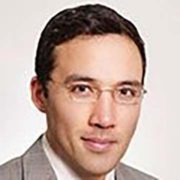
“After earning my BA in Political Science and International Relations from Richmond, I went on to earn my MSc from the London School of Economics and JD from Rutgers School of Law. I am currently a Deputy Attorney General for New Jersey in the Office of Public Integrity and Accountability. I joined my current office after practicing at a large international law firm for more than five years.
There is a through line from my time at Richmond to my current practice. Practicing law requires, among other things, the ability to quickly digest facts, see an issue from all sides, and draw key distinctions among competing arguments. At Richmond, the quality of instruction, class size, and diverse community of students helped make me uniquely prepared for my career.”
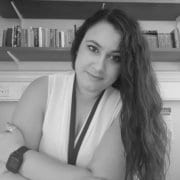
“My courses at Richmond have helped me gain the necessary knowledge in different areas – economics, politics, philosophy, international relations, environmentalism etc. – that have allowed me to approach my internship experience with the right confidence and make the most out of it.”

“The course elements at Richmond gave me the ability to create and start various initiatives due to the unique make-up of the University. My Richmond experience allowed me to explore my interests and I was able to determine where my passion and strengths lie, which completely changed my perspective and career path.”

